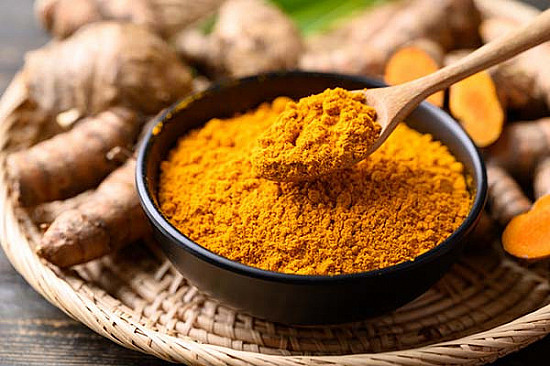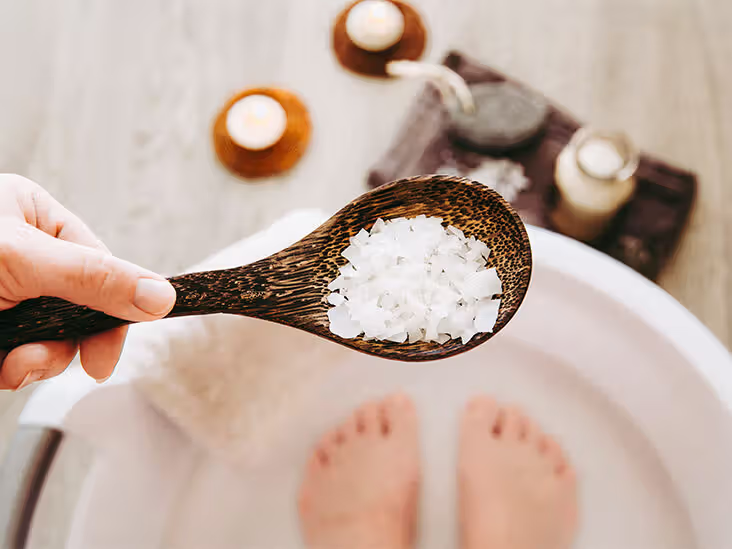Ease Your Aches Naturally with Simple, Trusted Home Remedies for Joint Pain
Natural remedies for joint pain are gaining attention for good reason. From kitchen spices to herbal oils, these age-old solutions can ease stiffness, reduce swelling, and bring lasting comfort. Whether your pain comes from arthritis, injury, or daily strain, these remedies offer relief without heavy medication. Try one or more today and help your joints feel strong again.
1. Turmeric: The Golden Healer

Curcumin’s Anti-Inflammatory Power
Turmeric contains curcumin, a compound shown to reduce inflammation and joint pain, especially in arthritis. Research suggests curcumin can be as effective as some anti-inflammatory drugs, but without the side effects.
How to Use Turmeric for Joint Relief
- Add turmeric to your daily meals or take curcumin supplements.
- For better absorption, combine with black pepper and healthy fats.
2. Omega-3 Fatty Acids

Reducing Stiffness and Swelling
Omega-3s, found in flaxseeds, walnuts, and fish oil, help decrease joint stiffness and inflammation. Regular intake supports cartilage health and can reduce the need for pain medications in arthritis sufferers.
Best Sources and Dosage
- Include fatty fish like salmon, sardines, or plant-based sources like flaxseeds in your diet.
- Consider high-quality omega-3 supplements after consulting your doctor.
3. Eucalyptus Oil

Anti-Inflammatory and Pain Relief
Eucalyptus oil is renowned for its anti-inflammatory and analgesic properties. Massaging it into joints can relieve pain and improve mobility.
How to Apply Eucalyptus Oil
- Dilute eucalyptus oil with a carrier oil and massage onto affected joints.
- Use regularly for best results, but avoid if you have sensitive skin.
4. Ginger Tea

Powerful Anti-Inflammatory Effects
Ginger contains gingerol, which helps reduce joint pain and inflammation. Studies show daily ginger consumption can significantly improve pain and stiffness in arthritis patients.
Easy Ways to Incorporate Ginger
- Drink ginger tea twice a day.
- Add fresh or dried ginger to meals and smoothies.
5. Epsom Salt Soak

How Epsom Salt Eases Joint Pain
Rich in magnesium, Epsom salt helps relax muscles and reduce joint pain. Soaking in an Epsom salt bath may provide temporary relief from arthritis-related discomfort.
Tips for an Effective Epsom Salt Bath
- Add 1-2 cups of Epsom salt to warm bath water.
- Soak for 15-20 minutes, up to three times a week.
6. Tart Cherry Juice

Fighting Inflammation and Gout
Tart cherry juice is loaded with anthocyanins, antioxidants that help lower uric acid and reduce inflammation. It’s especially beneficial for gout-related joint pain.
How Much to Drink
- Consume 8 ounces of tart cherry juice daily.
- Choose unsweetened juice to avoid excess sugar.
7. Boswellia

Boswellic Acids for Arthritis Relief
Boswellia, or Indian frankincense, contains boswellic acids that have been clinically proven to reduce pain, stiffness, and improve joint function in osteoarthritis and rheumatoid arthritis.
How to Take Boswellia
- Use standardized Boswellia extracts or capsules.
- Follow dosage instructions and consult your healthcare provider.
8. Hot and Cold Therapy

When to Use Heat vs. Cold
Applying an ice pack reduces swelling, while a warm compress eases stiffness and improves flexibility. Alternating both can provide comprehensive relief for chronic joint pain.
Safe Application Tips
- Apply cold for 15-20 minutes to inflamed joints.
- Use heat for 15-20 minutes to relax stiff muscles.
9. Stretching and Yoga

Gentle Movement for Joint Health
Regular stretching and yoga increase joint mobility, reduce stiffness, and boost blood flow. Poses like “child’s pose” and “cat-cow” are especially beneficial for joint support.
Getting Started with Yoga
- Begin with gentle poses and focus on breathing.
- Practice regularly to maintain flexibility and reduce pain.
Understanding Natural Remedies for Joint Pain and Why Natural Remedies Matter
Joint pain can make even small tasks feel heavy. When getting out of bed hurts or stairs feel endless, it affects more than just your body—it drains your joy. Natural remedies offer gentle healing that feels safe, personal, and empowering. They remind you that comfort and movement can return without harsh side effects.
Everyday Tips to Support Healthy Joints
- Keep moving: gentle yoga or walking keeps joints flexible.
- Stay hydrated: water cushions your joints and helps recovery.
- Watch posture: good alignment prevents added strain.
- Eat colorful fruits and veggies for antioxidants.
FAQs
Q1. How long do natural remedies take to work?
Results vary, but with consistency, you may notice improvement within a few weeks.
Q2. Can I use these remedies with medication?
Yes, but always check with your doctor to ensure no conflicts.
Q3. What’s the best remedy for knee joint pain?
Turmeric, omega-3 foods, and hot compresses often show the best results for knees.
Q4. Are there any side effects?
Most are safe, but some people may be sensitive to vinegar or spices. Start small.
Q5. Should I see a doctor if pain persists?
Yes, if pain continues beyond a few weeks or worsens, professional advice is essential.
At Neu Deals, we once partnered with a wellness brand that offered herbal products for joint care. Our team helped them promote their seasonal sale using targeted coupon campaigns and verified offers. One of our clients said,
“Neu Deals made it so easy to reach the right shoppers. The coupon engagement was amazing.”
If you’re a health or lifestyle brand looking to boost your next promotion, reach out to Neu Deals for a custom campaign estimate today.























